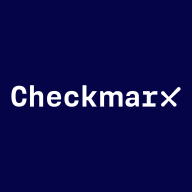

Fortify Software Security Center and Checkmarx One are two prominent solutions competing in application security. Checkmarx One appears to have the upper hand due to its comprehensive features and ease of use.
Features: Fortify offers comprehensive vulnerability coverage, numerous integration options, and strong support. Checkmarx One is known for its intuitive functionality, robust scanning capabilities, and support for multiple programming languages.
Room for Improvement: Fortify users point out the need for improved reporting, faster scanning speeds, and enhanced analytics. Checkmarx One could benefit from better scan accuracy, a more user-friendly installation, and further optimization of its accuracy.
Ease of Deployment and Customer Service: Fortify's deployment is stable but has a steep learning curve. Customer service is proactive yet needs faster response times. Checkmarx One offers a smoother deployment and consistent customer support.
Pricing and ROI: Fortify has a manageable initial setup cost, though its ROI is questioned due to optimization time. Checkmarx One is more expensive but justifies its ROI with streamlined processes and faster integration.


Checkmarx One is an enterprise cloud-native application security platform focused on providing cross-tool, correlated results to help AppSec and developer teams prioritize where to focus time and resources.
Checkmarx One offers comprehensive application scanning across the SDLC:
Checkmarx One provides everything you need to secure application development from the first line of code through deployment and runtime in the cloud. With an ever-evolving set of AppSec engines, correlation and prioritization features, and AI capabilities, Checkmarx One helps consolidate expanding lists of AppSec tools and make better sense of results. Its capabilities are designed to provide an improved developer experience to build trust with development teams and ensure the success of your AppSec program investment.
We monitor all Static Application Security Testing (SAST) reviews to prevent fraudulent reviews and keep review quality high. We do not post reviews by company employees or direct competitors. We validate each review for authenticity via cross-reference with LinkedIn, and personal follow-up with the reviewer when necessary.